What is "Done" And How Does It Relate To Scrum Team Events?

The concept of the Scrum Team framework that is most commonly misunderstood is likely to be the Definition of ‘Done’. In this article, we’ll be exploring:
- What Is the Definition of ‘Done’
- How it can be used in Scrum Events
What Is the Definition of ‘Done’
“The Definition of Done is a formal description of the state of the Increment when it meets the quality measures required for the product.”
The Definition of ‘Done’ establishes a common understanding between the Scrum Team (Developers, Product Owner, and Scrum Master) as well as stakeholders, regarding the completion of work. It outlines the criteria that must be met for the work to be considered finished.
The primary goal of a Sprint is to produce a potentially releasable increment that meets the criteria outlined in the Definition of ‘Done’. The Definition of ‘Done’ plays an important role in ensuring the successful implementation of the Scrum framework and delivering value. It serves as a commitment for the ‘Increment’, which is one of the Scrum artifacts.
The Definition of ‘Done’ facilitates empiricism by promoting transparency through the creation of a shared understanding of the essential elements required for converting a Product Backlog Item (PBI) into a valuable, potentially releasable Increment during product development.
Want to know more about Scrum? Visit our course now.
Who is Responsible for the Definition of ‘Done’ relating to Scrum team ?
It is the collective responsibility of the entire Scrum team to establish a Definition of ‘Done’. However, if there are organizational norms in place, teams must adhere to them as the minimum requirement and expand upon them as necessary.
For instance, certain organizations are bound to follow industry regulations, standards, and other requirements that apply to their products. These regulations and standards should therefore be incorporated into the Product’s Definition of ‘Done’.
Another scenario is if an organization has security policies and standards that apply to all products. In such a case, these policies and standards should be incorporated into the Definition of ‘Done’.
Furthermore, the Scrum team can include their own technical and product quality criteria to ensure that the product is usable, valuable, and potentially releasable. They may also include internal processes that improve the overall quality of the product, such as Code Reviews, Pair Programming, and Automation Testing.
Definition of ‘Done’ about 5 Scrum Team Events
The Definition of ‘Done’ provides support for the Scrum framework across all its events. It serves as a critical element for Scrum Events.
1. Sprint Planning
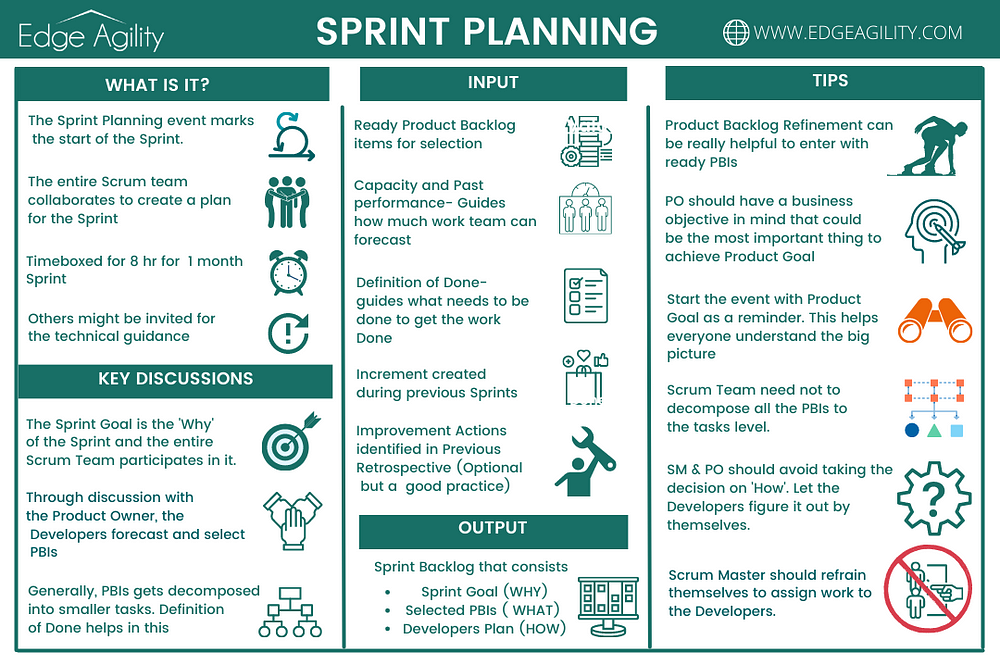
The Definition of ‘Done’ assists the Scrum Team in comprehending the activities necessary to complete their work. This understanding helps them break down Product Backlog Items into an actionable plan. Developers can then forecast the level of effort required to transform a Product Backlog Item into a done increment. This process enables the Scrum team to determine the amount of work that can be pulled from the Product Backlog.
As an example, the Definition of ‘Done’ may include processing elements such as ‘Creating Release Notes’. The team must estimate the amount of time required to write notes for the features they are building and plan their Sprint accordingly.
💡Note: Ensure that the Definition of ‘Done’ is prominently displayed during Sprint Planning. Encourage developers to refer to it frequently.
2. Daily Scrum Team
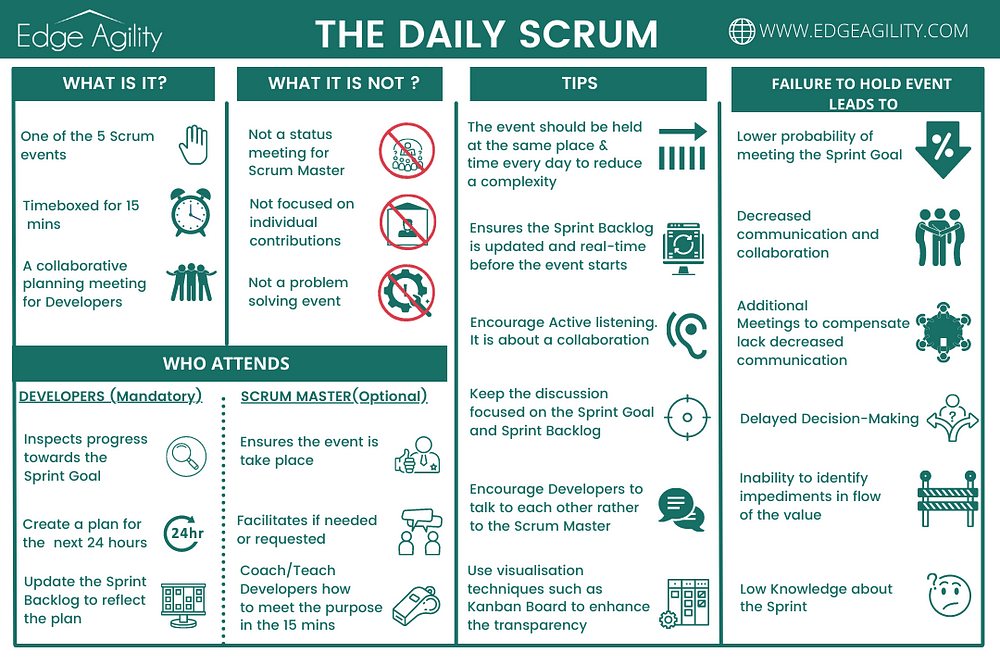
The Definition of ‘Done’ enables teams to understand that completing an individual member’s tasks related to a Product Backlog Item does not necessarily mean that the item is ‘Done’. The item is only considered ‘Done’ when the entire Definition is satisfied. This understanding fosters a ‘Team Goal over Individual Goal’ mindset, and the Daily Scrum is an ideal event to reinforce this concept.
💡Note: Create a workflow that illustrates how a Scrum Team achieves ‘Done’. Use columns to depict the flow and begin from right to left during the Daily Scrum. The items on the right are closer to being ‘Done’ and can potentially deliver value.
3. Sprint Review
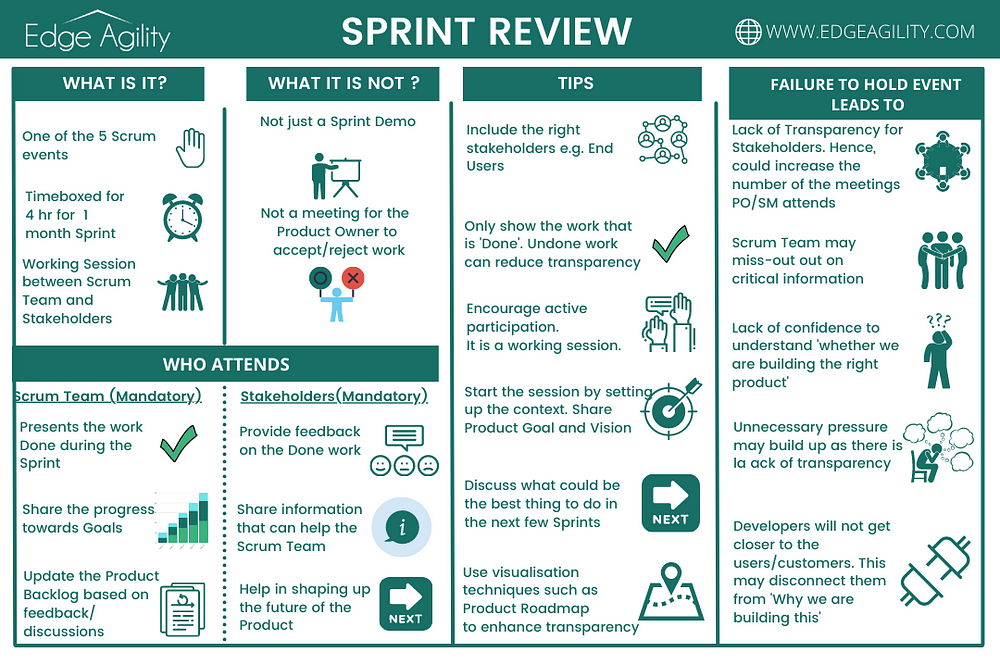
The Definition of ‘Done’ establishes a common understanding between stakeholders and the Scrum team regarding what ‘Done’ signifies. It also establishes a shared understanding of the product’s current quality criteria, fostering transparency among participants and supporting empiricism.
The Scrum Team receives the most valuable feedback when they share the ‘Done’ Increment with stakeholders. Unfinished work can diminish transparency and potentially lead to confusion and unrealistic expectations.
Sometimes, the Sprint Review may serve as a catalyst for modifying the Definition of ‘Done’.
A story from trenches

Photo by Brian McGowan on Unsplash
In 2017-18, I worked on developing a mobile app for a financial services company, which was a highly strategic product. Many senior leaders were interested in it and attended our regular Sprint Reviews. During one of the early reviews, we shared the Increment with stakeholders and began discussing the future roadmap. The Head of Digital raised an important question, asking, “Hello everyone, I can’t see any element of GDPR” (for those unfamiliar, GDPR is a data protection regulation in Europe).
As the Product Owner, I had no knowledge about GDPR at the time and replied, “GDPR…What is GDPR?” While it may be funny now, GDPR regulations were very new at the time, and this discussion not only triggered new Product Backlog Items but also led to the adaptation of the Definition of ‘Done’.
4. Sprint Retrospective
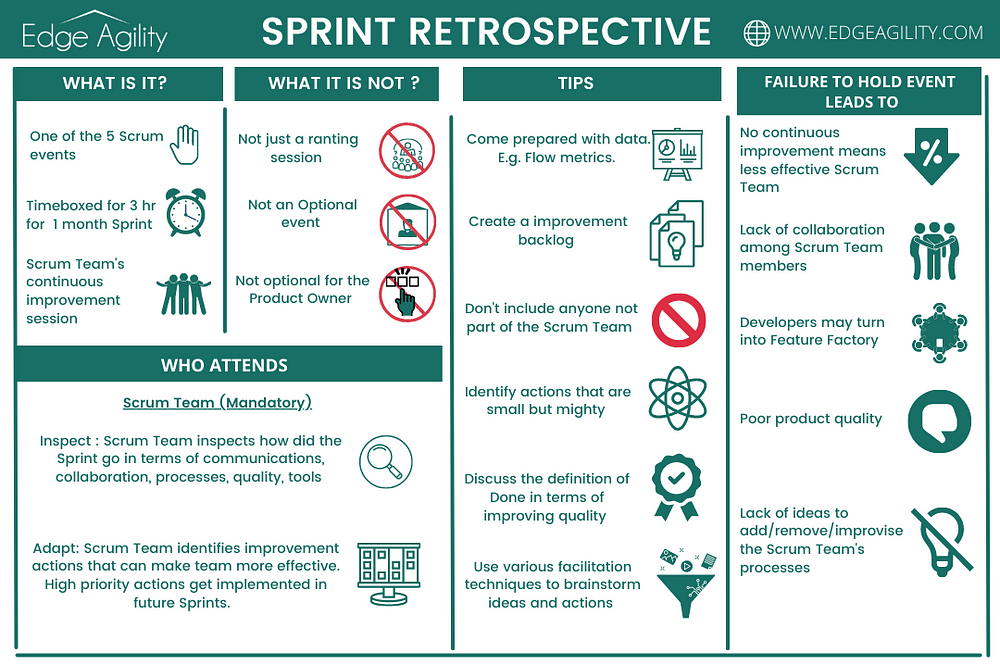
The Sprint Review is an ideal occasion to modify the Definition of ‘Done’ and refine the product quality and internal processes. While many teams may commence product development with a relatively lenient Definition of ‘Done’, it is important to remember that the ultimate objective is to minimize technical debt that might accumulate due to such leniency.
An instance where a less strict Definition of ‘Done’ was initially used is when you created my e-learning course. At that time, quality elements like ‘No grammatical errors’ or ‘Consistent font throughout the course’ were not included in the Definition of ‘Done’ as my main emphasis was on the course content. However, as you received feedback, you realized the importance of these quality criteria and gradually enhanced the Definition of ‘Done’.
5. Sprint
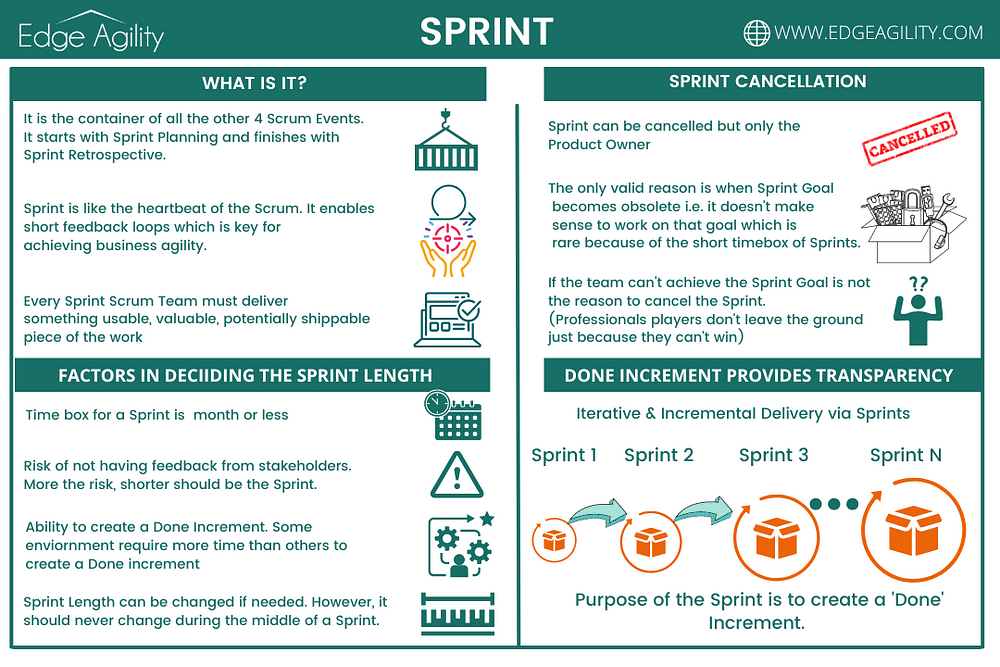
The consistency provided by Sprints is essential in managing the complexity of Product Development. The selection of Sprint length depends on the Scrum Team(s)’ ability to create the ‘Done’ Increment, with the Definition of ‘Done’ playing a crucial role in this decision-making process.
The attainment of the Product Goal and Sprint Goal relies on the work accomplished within the Sprints. A ‘Done’ Increment is crucial to achieving our objectives.
The team’s dedication to delivering a ‘Done’ Increment transforms concepts and conjectures into actual value. It is important for the Developers to constantly keep the Definition of ‘Done’ at the forefront of their thoughts during the Sprint.
End Note
A weak or disregarded Definition of ‘Done’ is a significant factor contributing to low product quality and technical debt accumulation. This ultimately impairs the long-term sustainability and scalability of the product, and may even undermine the viability of the entire organization.
Here at CourseMonster, we know how hard it may be to find the right time and funds for training. We provide effective IT Certifications that enable you to select the training option that best meets the demands of your company.
For more information, please get in touch with one of our course advisers today or contact us at training@coursemonster.com




Comments ()